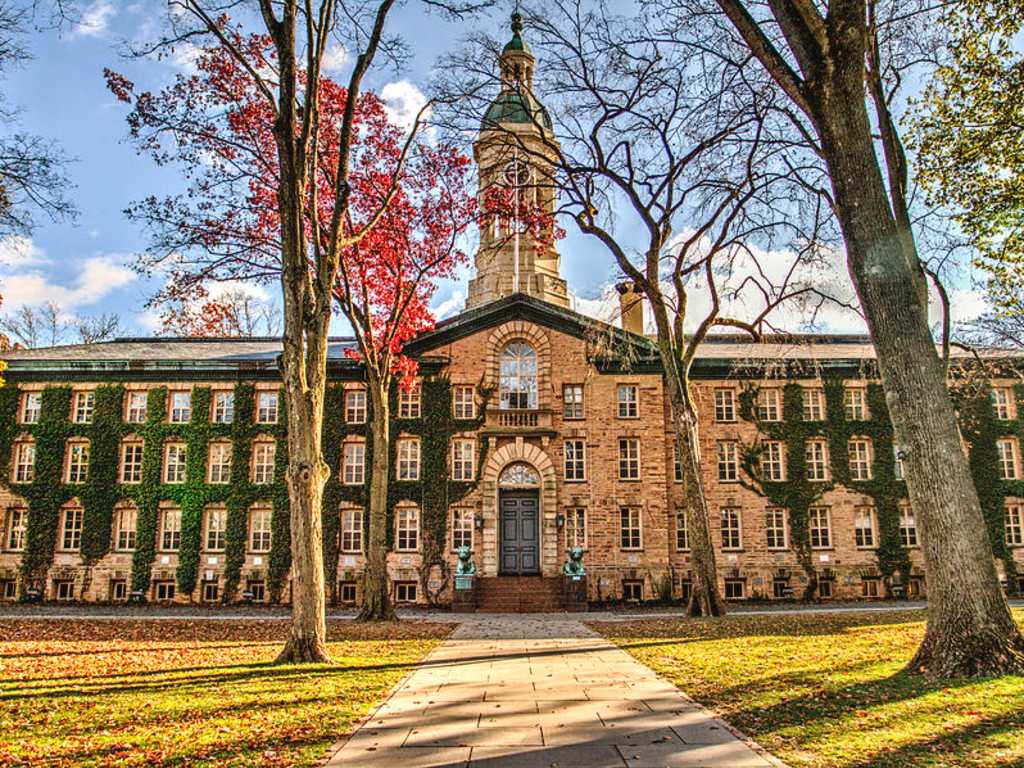Princeton University, a prestigious Ivy League institution, is renowned for its rigorous academic programs, distinguished faculty, and vibrant campus life. Established in 1746, Princeton has consistently ranked among the top universities in the world, offering a wide array of undergraduate and graduate programs. This article provides an in-depth look at the courses offered, tuition fees, placement opportunities, a comparative price chart with five competing institutions, and the visa process for international students.
Courses Offered at Princeton University
Princeton University offers a variety of undergraduate and graduate programs across multiple disciplines. The institution is known for its emphasis on research and interdisciplinary studies.
Undergraduate Programs
Princeton offers Bachelor of Arts (A.B.) and Bachelor of Science in Engineering (B.S.E.) degrees. The major fields of study include:
- Humanities & Social Sciences
- Philosophy
- History
- Politics
- Sociology
- Psychology
- Economics
- Anthropology
- Public and International Affairs (Woodrow Wilson School)
- Natural Sciences
- Biology
- Chemistry
- Mathematics
- Physics
- Molecular Biology
- Neuroscience
- Geosciences
- Engineering & Applied Sciences
- Computer Science
- Mechanical & Aerospace Engineering
- Electrical & Computer Engineering
- Civil & Environmental Engineering
- Chemical & Biological Engineering
- Operations Research & Financial Engineering
Graduate Programs
Princeton University offers master’s and doctoral programs across various fields. Some prominent graduate programs include:
- School of Engineering and Applied Science
- Ph.D. and M.S.E. in Computer Science
- Ph.D. in Mechanical & Aerospace Engineering
- Ph.D. in Electrical Engineering
- School of Public and International Affairs
- Master of Public Affairs (MPA)
- Master of Public Policy (MPP)
- Department of Economics
- Ph.D. in Economics
- Department of Physics
- Ph.D. in Physics
The university also provides certificate programs that allow students to gain expertise in interdisciplinary subjects such as Finance, Environmental Studies, and Global Health.
Tuition Fees at Princeton University
Princeton’s tuition and fees vary based on the level of study and additional expenses such as housing, books, and personal expenses. Below is an estimated cost structure for the 2024–25 academic year:
| Fee Type | Undergraduate (per year) | Graduate (per year) |
|---|---|---|
| Tuition | $59,710 | $59,710 |
| Room & Board | $19,690 | Varies |
| Health Insurance | $3,000 | $3,000 |
| Personal Expenses | $3,000 | $3,000 |
| Books & Supplies | $1,500 | $1,500 |
| Total (Approximate) | $86,900 | $67,210+ |
Princeton is one of the few institutions that follow a need-blind admission policy for international students, ensuring financial aid eligibility based on demonstrated need. Nearly 60% of undergraduate students receive financial aid.
Placement Opportunities at Princeton University
Princeton University has a strong reputation for placing its graduates in top-tier jobs across various industries. The university’s Center for Career Development assists students with job placements, internships, networking opportunities, and career counseling.
Key Placement Statistics:
- Average starting salary: $85,000–$110,000 per year (varies by major)
- Top recruiters: Google, Microsoft, McKinsey & Co., Goldman Sachs, J.P. Morgan, Facebook, Amazon, NASA, IBM, and government agencies
- Placement rate: Over 90% of students secure employment or pursue further studies within six months of graduation
Engineering and finance-related majors often receive higher starting salaries compared to humanities and social sciences graduates. Many students also go on to top graduate schools, including Harvard, MIT, Stanford, and Oxford.
Comparison of Princeton’s Costs with Five Competitive Universities
Princeton is often compared to other Ivy League and elite institutions. Below is a comparison of tuition fees and overall estimated costs for the 2024–25 academic year.
| University | Tuition | Room & Board | Total Estimated Cost |
|---|---|---|---|
| Princeton University | $59,710 | $19,690 | $86,900 |
| Harvard University | $61,800 | $20,000 | $89,800 |
| Stanford University | $62,484 | $19,500 | $88,984 |
| Massachusetts Institute of Technology (MIT) | $63,370 | $19,700 | $90,070 |
| Yale University | $64,700 | $20,200 | $92,000 |
| Columbia University | $66,700 | $21,500 | $96,200 |
Although Princeton’s tuition is slightly lower than some competitors, all these institutions offer generous financial aid options to reduce the burden on students.
Visa Process for International Students
International students admitted to Princeton must obtain an F-1 or J-1 student visa to study in the United States. Below is the step-by-step process:
1. Obtain Form I-20 or DS-2019
After being admitted, students receive an I-20 form (F-1 visa) or DS-2019 form (J-1 visa for exchange students) from Princeton’s Office of International Programs.
2. Pay the SEVIS Fee
Before applying for a visa, students must pay the SEVIS (Student and Exchange Visitor Information System) fee online:
- F-1 visa fee: $350
- J-1 visa fee: $220
3. Complete DS-160 Form
The DS-160 form is an online nonimmigrant visa application that must be submitted on the U.S. State Department’s website. A confirmation page must be printed for the visa interview.
4. Schedule a Visa Interview
Students must schedule an appointment at the nearest U.S. Embassy or Consulate. Required documents include:
- Valid passport
- Form I-20 or DS-2019
- DS-160 confirmation page
- Receipt of SEVIS fee payment
- Proof of financial resources
- Admission letter from Princeton
5. Attend the Visa Interview
During the visa interview, students may be asked about their academic plans, financial situation, and intent to return to their home country after graduation. Approval or denial is usually determined on the same day.
6. Arrival in the U.S.
Upon visa approval, students can enter the U.S. up to 30 days before their program starts. They must report to Princeton’s Office of International Programs for further guidance.
Conclusion
Princeton University is an elite institution offering world-class education, a strong alumni network, and excellent career prospects. While the tuition fees are high, financial aid and scholarships help make education accessible. International students benefit from a streamlined visa process, allowing them to study in a dynamic and academically rigorous environment. With top-tier faculty, research opportunities, and placement support, Princeton remains a premier destination for higher education.

